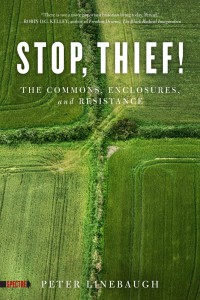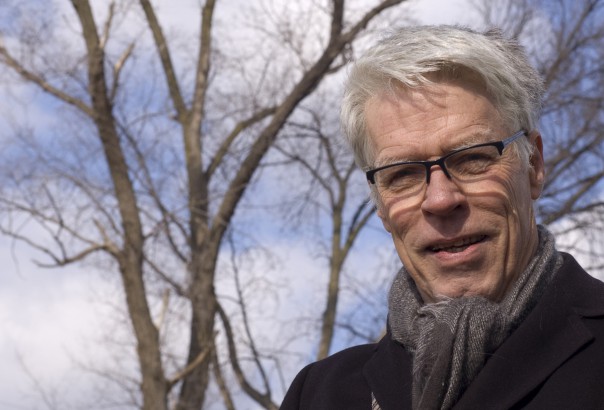As part of his whistlestop tour of England, we are very pleased to have Peter Linebaugh visiting Bristol. His co-authored book (with Marcus Rediker) The Many-Headed Hydra: The Hidden History of the Revolutionary Atlantic both inspired BRHG and provided Hydra Bookshop with its name. His recently published Stop, Thief!: The Commons, Enclosures, and Resistance (PM Press, 2014) provides the basis of this talk.
Setting out to George’s Hill in April 1649 Winstanley and a dozen others announced in their pamphlet The True Levellers Standard, a departure from the Levellers of Parliament, the franchise, and the Army, and their intention to level in practice without Parliament, voting, or armed force by collectively digging upon the commons. After a short historical pause of one hundred and fifty years, the debate resumed in England during the decade of the 1790s amidst famine, war, riot, insurrection, slavery, and enclosure. Where had the debate gone during the ‘pause’? Thrown by a many-headed Hydra it boomeranged to the Caribbean and north America returning to Britain and Ireland with revolution. Commoners of the world neglect this experience at our peril. Nowadays, “the commons” is cried on every hand, and yet the true commons would turn the world upside down. The “particular proprietors” or the “grand possessioners,” as the One Per Cent world-wide were called, must common or be commoned. There are no two ways about it.
Peter Linebaugh is a child of empire, schooled in London, Cattaraugus (NY), Washington, D.C., Bonn, and Karachi. He went to Swarthmore College during the civil rights days. He has taught at Harvard University and Attica Penitentiary, at New York University and the Federal Penitentiary in Marion, Illinois. He used to edit Zerowork and was a member of the Midnight Notes Collective. He coauthored Albion’s Fatal Tree, and is the author of The London Hanged, The Many-Headed Hydra (with Marcus Rediker), The Magna Carta Manifesto, and introductions to Verso’s selection of Thomas Paine’s writings and PM’s new edition of E.P. Thompson’s William Morris: Romantic to Revolutionary. He lives in the region of the Great Lakes and worked at the University of Toledo in Ohio (PM Press)
Watch This Talk
Event details
Date: , 2014
Time:
Venue: The Hydra Bookshop, BS2 0EZ
Price: Donation
With: Peter Linebaugh
Series: Miscellaneous 2014






